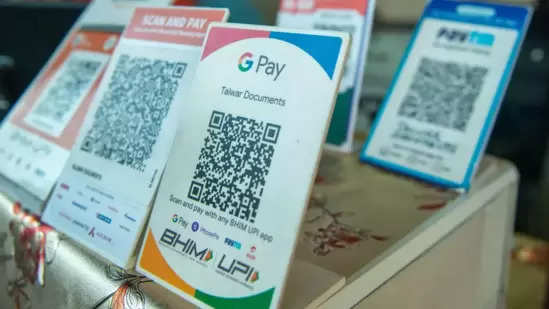NPCI Raises UPI Transaction Limit to Rs 5 Lakh for Key Categories Starting September 16, 2024

In a move set to significantly streamline high-value transactions, the National Payments Corporation of India (NPCI) has announced a substantial increase in the Unified Payments Interface (UPI) transaction limit. Effective September 16, 2024, users will now be able to execute payments up to Rs 5 lakh in specific high-value categories, a notable increase from the previous Rs 1 lakh cap.
This new development comes as part of a broader effort to enhance the convenience and efficiency of digital payments in India. The categories benefiting from this elevated limit include tax payments, hospital bills, educational fees, Initial Public Offerings (IPOs), and the Reserve Bank of India’s (RBI) retail direct schemes.
The announcement was first made last month during the RBI's monetary policy statement, which highlighted the bank’s commitment to facilitating more flexible payment options. The RBI had initially unveiled the increase in the transaction limit specifically for tax payments, recognizing the need for higher thresholds to accommodate large sums typically involved in such transactions.
Enhanced Cap for Essential Services
The increase to Rs 5 lakh per transaction represents a substantial shift in the UPI landscape, reflecting the growing trend towards digital payments for high-value transactions. This enhanced limit will notably impact several critical areas:
-
Tax Payments: The ability to pay taxes up to Rs 5 lakh in a single transaction via UPI simplifies the process for individuals and businesses handling substantial tax liabilities. This enhancement aims to reduce the complexity and time associated with making multiple transactions.
-
Healthcare: With rising medical costs, the new limit will ease the payment process for hospital bills, allowing patients and their families to manage large medical expenses more efficiently.
-
Education: The elevated limit is expected to benefit parents and students by making it easier to pay hefty educational fees, including tuition and other charges, in one seamless transaction.
-
IPOs: For investors participating in Initial Public Offerings, the higher cap will facilitate larger investments without the need for multiple transactions, streamlining the investment process.
-
RBI’s Retail Direct Schemes: Investors using the RBI’s retail direct schemes will also benefit from the increased limit, making it simpler to invest larger amounts directly in government securities.
Impact on the Digital Payment Ecosystem
The decision to raise the UPI limit aligns with the broader goals of financial inclusion and digital innovation. By allowing larger transactions through a unified platform, the NPCI and RBI are aiming to further integrate digital payment methods into everyday financial activities.
Experts believe this change will not only boost the adoption of UPI for high-value transactions but also reduce the reliance on traditional payment methods such as cheques or bank drafts. Additionally, the move is expected to enhance the security and transparency of large transactions, given UPI’s robust authentication and fraud detection mechanisms.
Looking Ahead
This increase in transaction limits is a positive step towards accommodating the evolving needs of users and businesses in India. It underscores the ongoing efforts by regulatory bodies and financial institutions to adapt to the dynamic landscape of digital finance.
As users and businesses begin to leverage the new limit, it will be essential to monitor the system's performance and address any potential challenges that arise from handling higher transaction volumes. The NPCI and RBI have indicated a commitment to ensuring the smooth implementation of these changes, which could pave the way for further innovations in the digital payments sector.
With the UPI platform already being a cornerstone of India’s digital payments ecosystem, this enhancement represents a significant milestone in making high-value transactions more accessible and efficient. As the rollout date approaches, stakeholders across various sectors are preparing to capitalize on the expanded capabilities of UPI, setting the stage for a new era in financial transactions.
--
